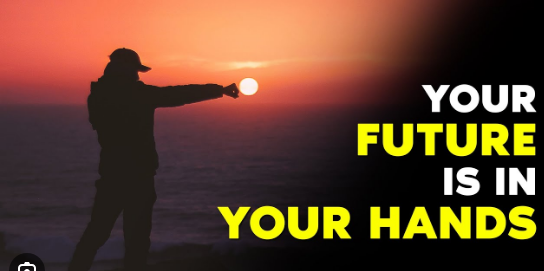The Future in Your Hands:
Shaping
Tomorrow Through Action
In an era of rapid technological advancement and societal
change, the old adage that "the best way to predict your future is to
create it" has never been more relevant. This principle, often attributed
to computer scientist Alan Kay, encapsulates a proactive approach to navigating
an increasingly complex and uncertain world.
The Illusion of Prediction
Traditional futurism often focuses on extrapolating current
trends to forecast potential futures. While this approach has its merits, it
inherently assumes a certain passivity—that the future is something that
happens to us, rather than something we actively shape. In reality, the future
is not a fixed point we're hurtling towards, but a malleable landscape we
continuously mold through our actions and decisions.
From Prediction to Creation
The shift from prediction to creation
represents a fundamental change in how we approach the future:
1. **Agency over Fatalism**: By focusing on creation, we
reclaim our agency in the face of seemingly overwhelming global challenges.
2. **Adaptability over Rigidity**: Creating our future
requires constant adaptation, fostering resilience in the face of unforeseen
changes.
3. **Innovation over Extrapolation**: Instead of merely
extending current paradigms, we open ourselves to breakthrough innovations that
can redefine entire industries or ways of living.
Tools for Future Creation
To effectively create our future, we
must leverage a combination of emerging tools and timeless principles:
- **Technological Empowerment**: Artificial intelligence, block
chain, and other emerging technologies offer unprecedented opportunities for
individuals to impact global systems.
- **Collaborative Networks**: The future will be shaped by
interconnected groups leveraging collective intelligence, rather than lone
visionaries.
- **Ethical Foresight**: As we gain more power to shape our
future, we must cultivate a strong ethical framework to guide our creations.
- **Continuous Learning**: In a rapidly changing world, the
ability to learn, unlearn, and relearn becomes the ultimate future-proofing
skill.
The Responsibility of Creation
With the power to create our future comes great
responsibility. We must consider the long-term consequences of our actions and
strive to create a future that is sustainable, equitable, and beneficial for
all of humanity.
Conclusion
As we stand at the threshold of unprecedented challenges and
opportunities, the future is not something to be passively predicted, but
actively created. By embracing our role as architects of tomorrow, we can
navigate uncertainty with confidence and shape a future that aligns with our
highest aspirations for humanity.
The best way to predict your future is indeed to create
it—not through crystal balls or trend analysis, but through bold vision,
relentless innovation, and purposeful action. The future is in our hands; let
us create it wisely.

Comments
Post a Comment